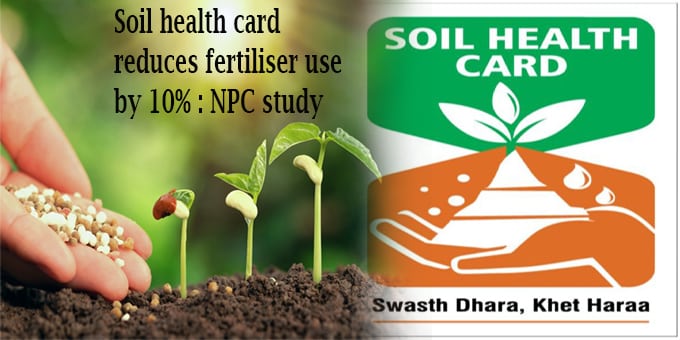On February 5, 2020, According to a study conducted by the National Productivity Council (NPC),a national level organization to promote productivity culture in India, the impact of Soil Health Card recommendations has led to a decrement of 8 – 10 % in use of chemical fertilizers as well as increased the productivity by 5 – 6%. Key Points:
Key Points:
i.Soil Health Card scheme:
It was launched by the Prime Minister (PM) Narendra Modi Government during the financial year-FY 2014-15 to deal with the decline of soil nutrients.
The Union Minister of Agriculture and Farmers Welfare, Shri Narendra Singh Tomar, the Ministry is issuing the Soil Health Cards, where during the Phase-I of the scheme (2015 – 2017),a total of 10.74 crore cards were issued to farmers and in the 2nd phase (2017 – 2019),11.69 crore Soil Health Cards have been distributed to farmers in the last two years. Hence totally, over 22 crore Soil Health Cards have been distributed to farmers till date.
ii.A flagship project ‘Development of Model Villages’ has been launched in the In the current FY20, where sampling & testing of cultivable soil is being promoted in association with farmers.
A Model Village has been picked for aggregation of soil samples & analysis of all agricultural holding.
iii.Soil labs in villages: In order to set up soil health laboratories under the scheme, the central Government has approved 429 stationary labs, 102 new mobile labs, 8,752 mini labs, and 1,562 village-level laboratories, besides strengthening 800 existing labs.
iv.Unemployed rural & farmers up to the age of 40 years are eligible to own soil health lab at a cost of Rs 5 lakh with the Centre and State governments funding 75% of the amount.
About National Productivity Council (NPC):
Founded– 12 February 1958
Headquarters– New Delhi





